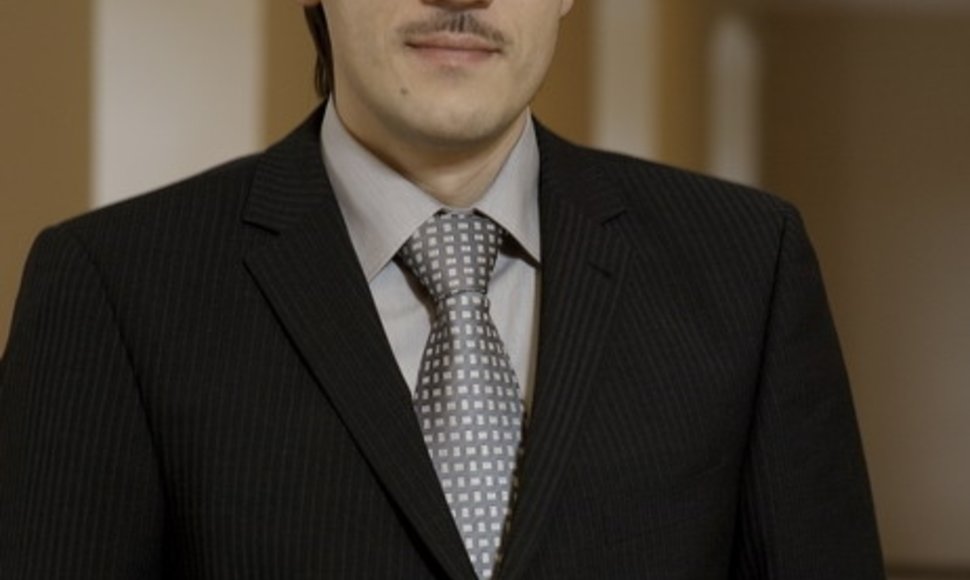The Ministry of Education and Science has drafted a new scheme for education funding which envisages less money for social sciences and more for technological and agricultural programmes. This is presented as a response to a labour market shortage of specialists in these areas. Pačėsa, however, says the decision will not solve the problem – more than that, the new scheme will further distort the already unbalanced financing system.
“When it comes to social sciences, there is much emotion involved. Businesses say they feel a shortage of skilled specialists of technologies. At the same time they say they need more good managers. I've always preferred numbers to emotions. In 2012, 47 percent of all university applicants listed social sciences as their first choice. A similar proportion got accepted. Meanwhile the share of financing given to the social sciences was 22 percent. 13 percent of applicants chose technological sciences, while financing for these were 30 percent. That means that the balance is already markedly skewed. If we try to interfere more, the imbalance will only increase,” he says.
Bad education
Pačėsa thinks that the actual situation in the labour market indicates that technological science programmes are already overfunded: “It does not take an analyst to see that. Just look at job classifieds and see what kind of job offers are most popular. 60 to 70 percent of positions that require a degree are for specialists in social sciences. And that is perfectly normal, considering our economy structure. There aren't that many producing companies – which is clear even without much analysis. And even these do not employ only engineers. So it is no exaggeration to say that more than a third of all funding going to technological science is too much.”
According to Pačėsa, the key problem is not the number of students choosing to study technological sciences but the quality of training they receive. “The issue is not too few people opting for technological sciences. There are enough graduates as it is. The issue is that the applicants are not always the brightest students and the graduates do not leave with top-notch skills,” the rector says.
The best go elsewhere
Pačėsa notes that students who graduate from school with top grades do not go for technological sciences: “Let's look at their choices. We're talking here about students who are bright, motivated about their future, and informed in their decisions. The often-proposed argument that students don't choose technological sciences because they're too much work simply does not apply here. And of those top students, 41 percent opted for social sciences, almost as many went for biomedical sciences, 6 percent chose humanities, and 12 percent, natural sciences. Not one preferred technological sciences. So the question is, why? The labour market is simply not welcoming to technological degrees. The industry fails to present itself enticingly to attract bright people. And study programmes are not attractive either, because technologies require state-of-the-art methods to be applied now. I doubt if any of our study programmes can offer that. And so we produce graduates who are completely unsuited for the demands of today's industry.
Pačėsa says that these issues are not being raised because they touch on a sensitive point – the quality of education offered at Lithuania's universities and colleges. “No one wants to talk about it, since this would be a reproach to those who offer the programmes. So instead all they speak of is the need to increase funding so more people apply,” Pačėsa says.
Private schools would do well even without public money
The rector claims that Lithuania's private schools could very well survive even without state support: “A private school can live without public money. Everyone thinks that private schools eye public money as their salvation. I can say that our school [ISM] gets more public funding than any other private institution – and that only accounts for 7 to 8 percent of our budget. It is not the kind of money we could not get by without. The question is, what does the state need? If we look at the most progressive examples, like South Korea, Singapore, Thailand, we see that the governments there pay big money so their citizens can study in best universities abroad as well as locally. The governments seek that their citizens receive the best possible education and bring the knowledge home. Whereas we want our students to stay at home and study in public universities for public money. This kind of regulation does not lead anywhere.”
Pačėsa notes, emphatically, that politicians draw a false opposition between private and public education. “The state vs private-sector criterion is the worst one could come up with. We once had a sharp distinction between state-run and private businesses – we know how it ended. We seemed to have gotten over the nuisance in healthcare. But it returned, with the private sector being vilified again as a bad example. Even though everyone with direct experience of service quality might disagree. The same applies in education. The state should pay more attention to areas receptive to research. Now, our best students leave, because Lithuania cannot offer top-quality education, there aren't enough laboratories. But when study programmes compete with one another, we must make sure that the money we invest yields the best possible result – be it education in Lithuania or abroad. Even though some might find the idea sacrilegious,” Pačėsa explains.
He says that politicians are currently setting out on an impossible quest – to predict what the market will need five or ten years down the road. “What is a state? A bunch of politicians divide up responsible posts and then make decisions. We assume that any politician is essentially able to analyse the labour market, economic trends and make objective decisions about what the country needs. For me, it is the greatest nonsense there is. Businesses and universities are there for that, with professors researching and analysing what we'll need. The state can determine how many teachers, fire fighters, or policemen the country needs – but that's it, the state's competence ends here. The rest is the realm of private enterprise. Politicians do not have a clue about what the world will look like in five years. Let alone in ten. And we are training students for careers lasting fifty years. I am attending conferences where we discuss technological advances and developments of the last year. How can we expect right decisions from politicians who are elected for four-year terms?”
Too many managers
Albertas Žalys, director of the Science and Studies Department at the Ministry of Education and Science, assures that the financing scheme will not undergo significant alterations – funding is simply cut due to dropping numbers of secondary school graduates. “The system is the same as it was last year. The same mechanism has been in effect for the last several years. The minister determines the number of study programme groups that the funds are divided into. The number varies from one year to the next. There used to be 6, 9, 13 groups. This year, we're planning 17 groups for university programmes and 11 groups for colleges. Programmes in private schools are funded through study grants. Funds for this year's freshman courses are cut by 9 percent. This is in proportion to an expected drop of applicants,” he explains.
Žalys also confirms that funding for social sciences programmes is cut. “Schools that offer mostly such programmes are outraged, but the decision was made based on data from the labour exchange. And the public opinion is clear – do we really need any more lawyers or managers? And when we cut funding for social sciences programmes, other areas will be getting relatively more. There's been some resentment that there isn't enough funding for agriculture. So now it is singled out in a separate group,” Žalys says.













